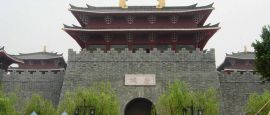Macau History, Language and Culture
History of Macau
Macau came under the sway of China in the 3rd century BCE, but it was the arrival of the Portuguese – who had colonial bases in Goa and Melaka – in 1557 that established Macau as an international trading port.
The union of the Portuguese and Spanish crowns between 1580 and 1640 marked a golden age for Macau. The territory soon became the major entrepôt between the Far East and Europe, and several other colonial powers, most notably the Dutch, made repeated but unsuccessful attempts to conquer it. Portugal split from the Spanish Habsburgs in 1640, but by then its power in Southeast Asia was in decline.
British prominence in the region began when they opened a trading post nearby on the Chinese mainland in 1750, which is known today as Hong Kong. Using gunboat diplomacy, Britain forced the Chinese to accept imported opium from India, a trade that helped Hong Kong compete with Macau.
Conflicting viewpoints and growing resentment between Britain and China sparked the first Opium War (1839-1842), which was essentially a dispute over trade. During this tumultuous time the Macau remained under Portuguese control until the Carnation Revolution of 1974, which sounded the death knell for the Portuguese Empire and saw Macau gain a kind of quasi independence.
In 1985, the Portuguese began negotiations with Beijing on the transfer of sovereignty of the territory and the final settlement provided for a handover in 1999, after which Macau would become a Special Administrative Region within China.
Today, Macau is the world’s most profitable gambling destination and keeps Beijing at arm's length after China agreed not to interfere in local affairs for 50 years.
Did you know?
• Macau is the world’s most densely populated region with 21,346 people per sq km in 2017.
• Portugal’s three biggest football teams – S.L Benfica, Sporting CP and FC Porto – all have branches in Macau.
• Macau was the first and last Asian country to be a European colony.




 You know where
You know where